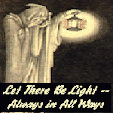iraqi democracy

Wow - they weren't expecting such a turnout in Iraq! Although it is still always best to conceal your face when you go through with a democratic process in these parts...
I am sure all of tomorrow's suicide bombers got to vote as well...
And their victims may have voted for the ONLY TIME EVER in their entire lives... got to make it count in those dire circumstances... right?

















2 Comments:
High Iraq turnout causes shortage of ballots
CTV.ca News Staff
A shortage of ballots is being reported in parts of Iraq Thursday, amid strong voter turnout in Sunni Arab areas for landmark elections to choose the country's first-full-term parliament since the U.S.-led invasion in 2003.
Explosions were reported in several Iraqi cities as the polls opened, but most areas were relatively calm Thursday.
In southeastern Mosul, about 390 kilometres north of Baghdad, a roadside bomb exploded near a school used as a polling station, killing a guard and wounding a policeman.
A civilian was killed when a mortar shell exploded near a polling station in the northern city of Tal Afar, and a large blast near the Green Zone in Baghdad injured two civilians and a U.S. Marine, says the U.S. embassy.
As many as 15 million Iraqis are expected to vote Thursday. At stake are 275 seats for the first full-term parliament since Saddam Hussein's ouster.
CTV Middle East bureau chief Janis Mackey Frayer said the mood today in Iraq is one of pride.
"They are very proudly walking in, getting their ballots, marking them, of course, dipping their finger in that ink and walking out again," Mackey Frayer told CTV Newsnet Thursday.
Most Iraqis walked to the polls, amid a nationwide vehicle ban.
Strong turnout has been reported in Sunni Arab areas, which had shunned balloting last January. Many Sunnis hope to curb the power held by Shiite clerical parties, who now control the government.
"Sunnis, since that January election, have been frustrated by their lack of representation and what turned out to be a predominantly Shiite government," said Mackey Frayer.
"They say that they fear intimidation -- that they are not going to have any say in the decisions for Iraq over the next four years."
The Bush administration is hoping that the greater Sunni turnout is a sign of a dulling insurgency, which could possibly lead to some troop withdrawals in the near future.
However, many agree that stability needs to come first.
"Fostering security is still the prime concern for this new government, which is expected to be a Shiite majority," said Mackey Frayer.
"And only then can they begin to consider at least a phased withdrawal of troops, which of course will be decided in conjunction with the U.S."
And instability could follow the vote, if the alliance of Shiite religious parties wins most of the seats, but not enough to form a new administration without a coalition of rival groups. That could lead to bitter negotiations.
Meanwhile, Shiite parties are urging their followers to come out in large numbers as well to protect their hold on the government.
In Kurdish areas, turnout has also been good. Many Kurds want to make sure the new Iraqi parliament represents them, especially in the face of the strong Sunni turnout.
The Kurds make up 20 per cent of Iraq's 27 million people. They have had effective autonomy in a three-province region of northeastern Iraq since the 1991 Gulf War.
The new parliament will serve a four-year term, and name a new prime minister. However, it could take days, or week, before the final returns come in. Some preliminary returns were expected Thursday.
Iraqis do not vote for individual candidates, but for tickets of candidates. There are 7,655 candidates running on 996 tickets, representing Shiite, Sunni, Kurdish, Turkomen and secretarian interests.
This is Iraq's third major vote this year. Voters elected an interim government in January, and ratified the country's new constitution in a referendum in October.
Post a Comment
<< Home